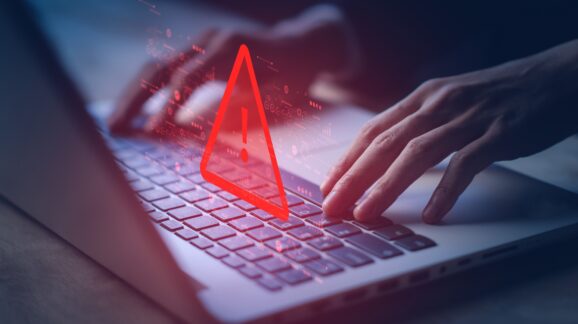Otherwise Objectionable episode 2: ‘The Dawn of the Internet’

Photo Credit: Getty
The second episode of Otherwise Objectionable, the narrative-driven podcast that tells the true story of Section 230 of the 1996 Telecommunications Act, focuses on the earliest days of the internet age. Host Mike Masnick, respected tech journalist and early Internet veteran behind the award-winning Techdirt blog, explores the platforms and bulletin boards of Web 1.0 and sees how they became a battleground in the war between online moderation and free speech on the internet.
In the latest episode, called “The Dawn of the Internet,” Masnick talks to some of the first internet users about those early days of networked computing and how it was a small circle of people that suddenly expanded exponentially.
NARRATOR: But one day early users like Andrew, Eric, and myself started to notice a strange disturbance of ecosystem we had come to know and love – it eventually became known as “The September That Never Ended.”
ANDREW BULHAK: Usenet was originally on the ARPANET internet, which was a closed system with mostly universities and research institutions. And every year in September, they’d get an influx of newly signed-in students. In September, there’d be all these clueless newbies stumbling around for a while, making all these faux pas, and, of course, September never ended. That meant there was a constant influx of newcomers and it was considerably larger than the student intake every year. So there were a lot of people who just got their AOL cover disks and just posted in all caps about asking some question, completely oblivious to which forum they were posting to. And if there were one or two of those, it would have been easy enough to handle, but there were large numbers of them, so that’s what they called “The September That Never Ended.”
NARRATOR: Once the horse was out of the barn, there was no getting it back in. Fast-forward to 1993 and the first AOL disks are being sent out. Platforms that are a little more user-friendly than Usenet are popping up, and the old guard are starting to notice problems.
BULHAK: When “The September That Never Ended” came in and Usenet sort of became flooded, that was a bit of a shock, because all of a sudden the level of, the signal-to-noise ratio in the discourse dropped and the quality of discourse deteriorated. But worse than that was just the spam. I mean, the economics meant you could send millions of messages about your get-rich-quick scam or dodgy website or whatever, and even if one person bit the bait, then you’d come in ahead.
ERIC GOLDMAN: Usenet was a chaotic mess.
Next, Masnick turns to the then-congressmen who recognized the emerging chaos and came up with a solution, starting with former Rep. Chris Cox (R-CA).
NARRATOR: Being a true techie, Chris Cox saw that the Cubby decision would not hold up with the internet growing as fast as it was. Remember, this was in the middle of “The September That Never Ended.”
CHRIS COX: CompuServe was not responsible for something illegal. That somebody had said online because they hadn’t made any effort to moderate that content. They hadn’t gotten involved in editing it in any way. They were like a library, and librarians are not responsible for what’s in the books. But the law was not designed for a newspaper that got Millions of pieces of content in a very short period of time and that published it in real time.
NARRATOR: An endless stream of information, opinions, and content, completely unfiltered and unmoderated. That would be hard for pretty much anyone to stomach.
COX: Looking at this case and seeing and imagining what would be the consequence, I had plenty of time to think about it on that airplane ride. And so I sketched out on a yellow legal pad, you know, the beginnings of what became Section 230.
NARRATOR: What came next was something the internet’s founders could only dream of: a revolution of open information and connection. Whether he meant it to or not, Chris Cox’s sketch gave birth to all the user reviews, YouTube tutorials, and other tools that have grown in the spirit of the free flow of information. How? We’ll dig into that next episode. Let’s just say the road to the internet we know now was… bumpy.
Listen to Otherwise Objectionable episode 2: ‘The Dawn of the Internet’ here.
You can subscribe to Otherwise Objectionable on Apple Podcasts, YouTube, Spotify, RSS, or wherever you get your podcasts.